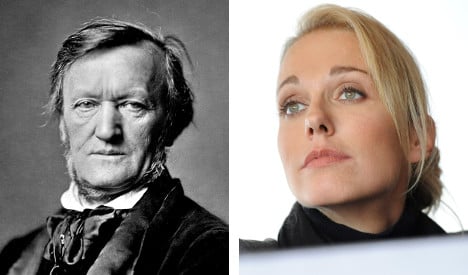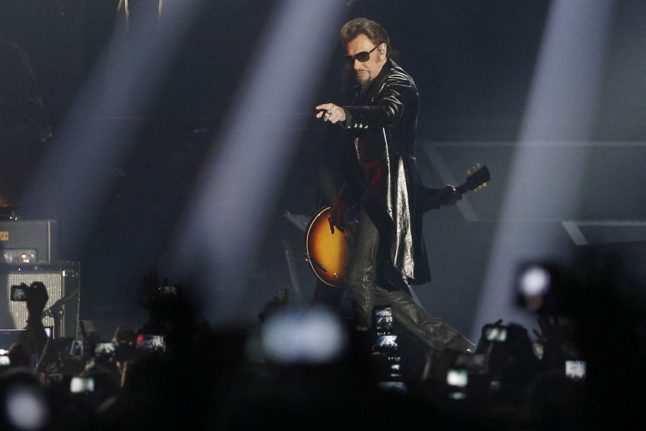Much is at stake when the curtain rises on a new production of Richard Wagner's opera “Tristan and Isolde” on Saturday, the glittering opening night of the legendary Bayreuth Festival.
The stakes are particularly high for the festival chief, Wagner's great-granddaughter Katharina Wagner, who is directing this year's staging.
The 37-year-old has been at the helm of the month-long summer music festival dedicated exclusively to Wagner's works alongside her much older half-sister Eva Wagner-Pasquier since 2009.
But Eva, 70, is stepping down at the end of the summer, leaving Katharina in sole charge, at least until her current contract expires in 2020.
Ever since the festival's beginnings in 1876, the composer's descendants have torn each other apart in bitter feuds for control of Bayreuth, whose guests traditionally include royalty and the political and social elite of the day.
Adolf Hitler was a fervent Wagnerian and regularly attended the festival.
In peace-time Germany, many heads of government and state have come, and Chancellor Angela Merkel is this year again set to attend the opening night.
At times, the internecine battles of the different branches of the Wagner family have threatened to overshadow the on-stage theatrics. And this year has been no different.
Media reports — vigorously dismissed — have claimed that Katharina colluded with conductor Christian Thielemann to have Eva barred from the Green Hill once rehearsals for “Tristan” had started.
More oil was poured on the fire when the current “Ring” conductor, the intensely media-shy Russian Kirill Petrenko, publicly lambasted the way one of his singers — Canadian tenor Lance Ryan, who sang the role of Siegfried in the past two years — was replaced at short notice.
In directorial terms, the list of works Katharina has staged is still comparatively short. And she has only once before directed in Bayreuth's Festspielhaus — the opera house built to her great-grandfather's own designs — with “The Mastersingers of Nuremberg”, a production that was almost universally loathed by audiences and critics alike.
Classical music aficionados suggest Bayreuth, more generally, could be losing some of its veneer. And Katharina's critics lay the blame squarely at her door.
Under her leadership, the festival's aesthetic preferences have veered towards confrontational directors, such as the self-styled “enfant terrible” of German theatre, Frank Castorf, whose current production of the sprawling four-opera “Ring” cycle has met with deafening waves of boos and whistles since it premiered in 2013.
Dyed-in-the-wool Wagnerians tend to be deeply conservative in their operatic tastes, and seasoned Bayreuthers say they are feeling increasingly alienated by the provocative, in-your-face productions.



 Please whitelist us to continue reading.
Please whitelist us to continue reading.
Member comments